Opinion
Solving ethnic issues without PCs

Tamils and also Muslims to a degree in the North, East, Centre and Colombo voted for this government rejecting their own ethnic political parties helping the government secure a two-thirds majority. The significance of this change of heart, as it were, should be understood by the government as well as all political leaders of the country. Maybe they want, apart from solving the problems common to all communities, a different approach to the ethnic problem which had been all these years exploited by their politicians for their own political survival. They may have realised the inadequacy of benefits of Provincial Councils (PCs) where the huge expenditure they entail is concerned.
The PCs do not serve any useful purpose. One cannot see a single project or beneficial outcome accruing from the PC system anywhere in the country. Instead, they have led to another bureaucratic barrier to the people and an increase in the number of politicians. The devolution of power via these PCs is totally redundant as shown by the inability of the Northern PC, which was formed for the very purpose of solving the Tamil problem, to make use of the opportunity to serve the people. The work done by the PCs could easily be carried out by the Government Agents and the Kachcheri system we had previously, without the involvement of politicians.
The total revenue of the PCs in 2020 was Rs. 331 billion and their expenditure was more or less equal. Thus, financially there was no gain for the country. The state coffers would have received that revenue even if there had been no PCs with much less expenditure. The PCs have functioned under Governors without elected representatives for several years.
Further, several authoritative worldwide surveys have shown that power-sharing as a solution to ethnic conflicts has not been effective. About 78 countries in Asia, Africa, West Asia, Eastern Europe, the former USSR and the Caribbean experienced intense ethnic conflicts during 1980 to 2010. Of these, only 20 managed to conclude inter-ethnic power sharing arrangements. Some of them such as Rwanda witnessed genocide Sudan in 2005, and Sudan was divided into two states. Only four to six countries achieved stable arrangements but they are also facing political instability (Horowitz D, 2014).
The following are some excerpts of the research findings; The core reason why power-sharing cannot resolve ethnic conflict is that it is voluntaristic; it requires conscious decisions by elites to cooperate to avoid ethnic strife. Under conditions of hyper-nationalist mobilisation and real security threats, group leaders are unlikely to be receptive to compromise and even if they cannot act without being discredited and replaced by harder-line rivals” (Kaufmann, 1997). Proposals for devolution abound, but more often than not devolution agreements are difficult to reach and once reached soon abort” (Horowitz, 1985).
That Sri Lanka provides ample evidence in support of the above research findings. Of the nine PCs the worst failure was seen in the one in the North, where it was supposed to facilitate the efforts being made to find a solution to the ethnic conflict. Its Chief Minister, after willingly contesting for the post, made use of the opportunity to engage in secessionist propaganda. He did not make use of the government grants for the development of the North.
In consideration of the above, what would be more suitable for Sri Lanka is a power-sharing mechanism. The Tamils who voted for the NPP government may prefer such a system.
The government has a two thirds majority and could bring in the necessary constitutional changes to do away with the presidential system, get rid of the 13th Amendment and establish an institution for power sharing at the centre.
N. A. de S. Amaratunga

Opinion
125th Birth Anniversary of Senator A Ratnayaka – a humble politician with a Vision for Education
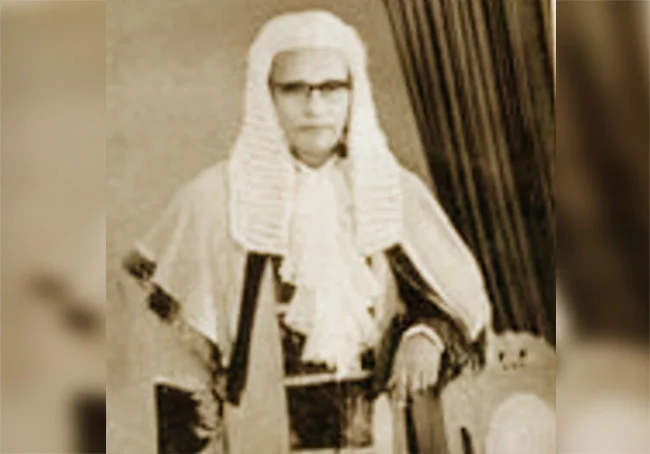
07 January 2025 is the 125th birth anniversary of Senator A Ratnayake, State Counsellor, Member of Parliament and the last President of the Senate.
Ratnayake Wasala Mudiyanselage Abeyratne Ratnayaka, widely known as A Ratnayake was born the eldest of 13 siblings to Punchi Banda Ratnayake and Dingiri Amma Ratnayake. His father was a stalwart of the Kandy Temperence Movement. Ratnayake was first educated at Dharmaraja College, Kandy and later at Royal College, Colombo. He entered Ceylon University College, now University of Colombo and obtained the Bachelor of Art (London) degree.
Mr. Ratnayake first became a teacher at Ananda College, Colombo. In1924, he was appointed Principle of Maha Bodhi College by late Anagarika Dharmapla, his mentor and who had a great influence on young Ratnayake. Thereafter he studied Law and qualified as an Advocate in 1931. Mr. Ratnayake married Amawathie Andarawewa Kumarihamy, a daughter of a ‘Rate Mahatmaya’ the Head of an administrative locality called a ‘korale’. They had 7 children.
However, his first love was always politics. Mr. Ratnayake was elected to the first State Council of Ceylon from Dumbara constituency in 1931 when the legislative name and the structure of Ceylon was changed from the Legislative Council of Ceylon to The State Council as recommended by the Donoghmore Report. Under the new legislature, members of the State Council were selected to seven special executive committees, the chairmen of these were the Ministers. Mr. Ratnayake chose to be in the Education Committee. On reflecting why he chose education over others; one wonders whether his observation of the plight of his constituents’ educational opportunities compared to the wealthy and the connected in the South and North of the country played a part. Additionally, his awareness of his own privileged education and a desire a provide a similar education for all must have played a part too.
It is worthwhile recounting in detail the story behind Mr. Ratnayake’s role in the free education described in Sir Ivor Jennings memoir, Road to Peradeniya posthumously published in 2005. Sir Ivor was also a member of the education committee. He had stated that Mr. Ratnayake brought the idea of free education for all to the special committee but could not attend subsequent meetings due to ill health from a road traffic accident. However, as fortune may have it, he attended the very last meeting at which the motion was to be signed. Mr. Ratnayake had asked whether the motion contain free education for all. CWW Kannangara, then Education Minister had said that it provided free education up to the age of 14 and thereafter the brightest 25% would be offered scholarships. On hearing this Mr. A Ratnayake is said to have asked whether in the age of the common man they were prepared to deprive the poor student making education a middle-class monopoly. The passionate wish to change education that is not dependent on one’s birth or creed contrasts with other more powerful and influential politicians of the day who were said to have opposed his motion. Mr. Ratnayake’s insistence and strong persuasive powers won the day as the report was rewritten with amendments necessary to provide free education for all. In 1944 the revised motion amounting to a vast increase in the education budget was presented to the State Council by CWW Kannangara.
In 2009, late Professor Carol Fonseka in his CWW Kannangara Memorial Lecture brought these facts to the fore. He asserted that free education would not have been conceived at all if not for A Ratnayake, but it would be stillborn if CWW Kannangara had not put the energy and the enthusiasm to make it into reality.
We now know that child development is variable and very individual and those who do not show early potential can be late developers and achieve great heights that would not have been possible if the opportunities were not provided. Mr. Ratnayake’s vision for education undoubtedly helped this potentially neglected group who would have lost the opportunity if the initial plan of scholarships to the brightest at 14 was implemented.
Mr. Ratnayake played a significant role in other areas of development too. In1948, he became the First Minister of Food and Cooperatives in the post independent Cabinet of Prime Minister D S Senanayake. Mr. Ratnayake initiated the Cooperative Movement in Ceylon, a worldwide organization that began in Great Britain which he advocated to be managed by the people. He inaugurated the Cooperative Federal Bank, which later became Peoples Bank, providing credit to rural folk who otherwise had to depend on money lenders.
In 1952, under Prime Minister Sir John Kotalawela as the Minister of Home Affairs Mr. Ratnayake proposed to the government to commemorate 2,500 years of Buddha Parinibbana a promise he had made to his mentor, the late Anagarika Dharmapala when the two resided at the same accommodation whilst Mr. Ratnayake attended school at Royal College. The translation of the Tripitaka to Sinhala, an encyclopedia on Buddhism in English and the restoration of the Dalada Maligawa were all carried out during his tenure as the Minister of Home Affairs.
It is imperative that the younger generation of today to be made aware of the achievements of Mr. Ratnayake, his determination to provide education for all from kindergarten to university which has benefitted generations of Sri Lankans and continues to do so today. In addition, his contributions to uplift religion, language and culture in the post independent era is worthy of recognition.
When the history of this period is recorded, the name of A Ratnayake will be written in golden letters as a true patriotic son Sri Lanka.
Dr Manouri Senaratne
Opinion
Newspapers more than just headlines

One of my earliest memories is waiting for my grandfather to wake up from his nap in the armchair and passing the time by struggling to read the newspaper that covered his face. As I grew older, being the child of a journalist who chronicled our formative years—albeit thinly veiled with pseudonyms— it was about racing to get the newspaper to see which of us was the target of the week. Sunday mornings meant fighting for the different sections, eager to be the first to open them and breathe in the smell of freshly minted newsprints and leave ink-smudged fingerprints on the nearest sibling.
While it’s easy to lament the changes in journalistic ethics and writing styles—or to get news at lightning speed from various channels—when we seek authenticity, we consistently turn to newspapers. Let’s be real, the unmistakable crinkling sound when flipping through the crisp pages of a newspaper, the scent of fresh ink and the smorgasbord of narratives and images is a sensory experience that no smartphone app can replicate.
Can you imagine starting a workday without at least a quick glance at the headlines and a peek at the editorial section? One moment, I find myself engrossed in the latest political scandal; the next, laughing out loud at a cartoon that perfectly captures the mood of the week. There’s something wonderfully charming about how newspapers weave together unexpected connections between stories, juxtaposing global crises with local bake sales. You never know what hidden treasure you might uncover, a delight that’s lost when reading by clicking on specific articles.
So, the next time you find yourself caught in the binary web of modern media, remember the newspaper — a gateway to the past, present and perhaps even the future.
Romany Parakrama
Daughter of late Sita Jayawardana, Chief Editor of Sri Lanka’s first English language women magazine, the Ceylon Women and veteran actress
Opinion
The second term of Donald Trump: What could we expect? – Part II
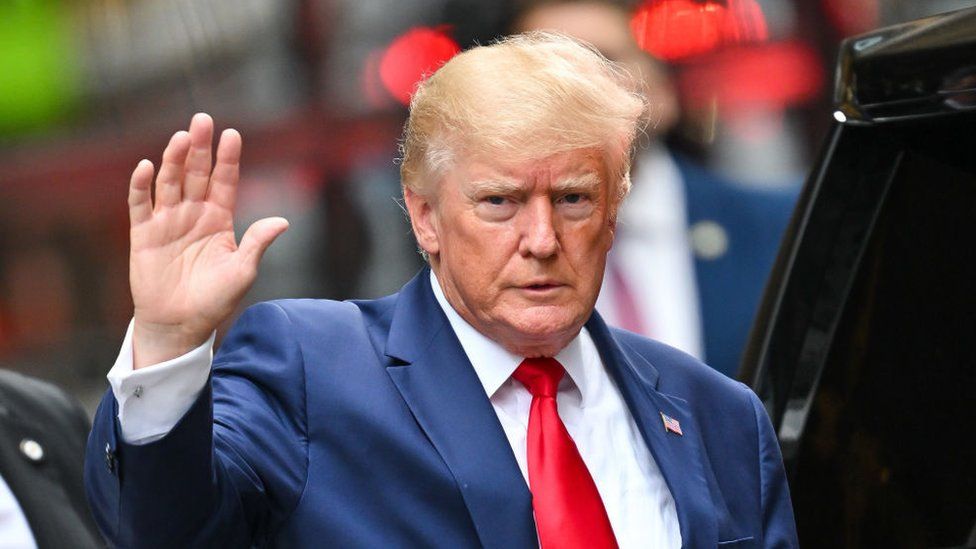
by Tissa Jayatilaka
(This article is based on a talk given to the members of the Sri Lanka Foreign Service Association on the 10th of December, 2024. First part of it appeared in The Island of 01 Jan. 2025).
Karl Rove, a veteran conservative political operative, wrote recently in the Wall Street Journal as follows:
Rather than for any particular skill or competency, Mr. Gaetz was selected because he promised he would spite Mr. Trump’s enemies within the Justice Department and hound his opponents outside it. Senator Markwayne Mullin, the junior senator from Oklahoma, essentially said much the same when he said, “I think the President wants a hammer at the Department of Justice (DoJ), and he sees Matt Gaetz as a hammer”. When asked if she would vote for Gaetz, Senator Marsha Blackburn said that she and her fellow Republicans are ready to support “every single one of Trump’s nominees”. Trump’s replacement nominee for Attorney General Pam Bondi, the senior senator from Tennessee has vowed to pursue Trump’s retribution agenda.
The Department of Government Efficiency or DOGE was first announced by Donald Trump about a month or so ago. Elon Musk and Vivek Ramaswamy, two billionaires and possibly the two highest financial contributors to Trump’s election campaign are to be in charge of the new department. Trump envisions that DOGE “will become, potentially, The Manhattan Project of our time”, the President-elect wrote on his social media platform referring to a top-secret World War 11 programme to develop nuclear weapons.
Though DOGE has Trump’s support and has the word ‘department’ in its name, it is not an official government department that has to be established through an Act of Congress. Instead DOGE, it is believed, will operate as an advisory body, run by two of Trump’s right-hand men with a direct line to the White House. In an article published in the Wall Street Journal a few weeks ago, Musk and Ramaswamy said they would “serve as outside volunteers, not federal officials or employees”. Their task is to provide guidance to the White House on spending cuts and compile a list of regulations that they believe are outside the legal authority of certain agencies and ought to be revised or discarded.
Government reforms by way of major cuts appears to be the remit of DOGE. The federal bureaucracy “represents an existential threat to our Republic”, Musk and Ramaswamy have written in the Wall Street Journal. “Unlike government commissions or advisory committees, we won’t just write reports or cut ribbons. We will cut costs”. At what cost they will do so is anybody’s guess. And the pair of billionaires have threatened to slash federal regulations, oversee mass layoffs and totally shut down some agencies. We should bear in mind in this context that during his campaign to secure the 2024 Republican presidential nomination, Ramaswamy vowed to do away with the Department of Education (DoE) – – something Trump repeated days after winning the election. He released a video announcing that the DoE’s days were numbered. “One other thing I’ll be doing in the administration is closing up the DoE in Washington D.C. and sending all education and education work and needs back in the States”). For his Education Secretary, Trump has picked Linda McMohan, the co-founder of World Wrestling Entertainment, who served as head of the US Small Business Administration in Trump’s first term.
Speaking at a gala held at Mar – a -Lago in November, Ramaswamy thanked Trump “for making sure that Elon Musk and I are in a position to start mass deportations of millions of unelected federal bureaucrats out of the District of Columbia bureaucracy”.
Even before it has been officially established, DOGE has been set a deadline of 4 July, 2026, to finish its job. When announcing the new body Trump said:
A smaller government with more efficiency and less bureaucracy, will be the perfect gift to America on the 250th Anniversary of the Declaration of Independence.
These are large claims and threats indeed. Whether they could be actually implemented or not remains to be seen.
Let’s take a look at some others of Trump’s picks for top posts. They have dismayed policy circles in Washington – -including Republican lawmakers and former officials who served during his first presidency.
Trump’s proposed inner circle on the foreign-policy front, is made up of notable hawks including Senator Marco Rubio as Secretary of State and Representative Mike Waltz as National Security Adviser. Rubio is an unbelievably steadfast supporter of Israel and advocates a hardline approach to China, Iran, Cuba, and Venezuela; Waltz is a Green Beret veteran who has been one of Beijing’s fiercest critics. He has consistently supported a tough stance on China.
Fox News host Pete Hegseth, Trump’s initial pick for Secretary of Defence, raised howls of protests from even among Republicans. He is a decorated Army veteran but has little or no direct experience in the Pentagon or government. He has referred to Army generals who adhere to diversity, equity and inclusion efforts as “woke shit” and said that women should not serve in combat roles. Hegseth has been accused of alcohol abuse, financial mismanagement, and sexual misconduct. It looks almost as if sexual misconduct or allegations thereof is a pre-requisite for higher office in Trump’s second term! Happily, there are unconfirmed reports that indicate Trump now has second thoughts about Hegseth as a nominee for his Secretary of Defence. One of the names in circulation as a possible replacement for Hegseth is Florida Governor Ron de Santis.
Military veteran Tulsi Gabbard, who left the Democractic Party in 2022 and became an independent, is Trump’s nominee to be the Director of National Intelligence, regardless of her lack of direct intelligence experience. John Bolton, one of Trump’s former National Security Advisers, described Gabbard’s nomination as “hilarious” in a post on X. Bolton is on record as saying that Trump cannot tell the difference between the national interest and his personal interest.
Rubio, Hegseth (in case he remains Trump’s nominee for Secretary of Defence), Gabbard all require Senate confirmation before they can serve in their respective posts. According to information in the media Senate Republicans are unlikely to give Trump and his nominees a free pass.
Let me now take a close look at the likely main features, discernible at present, of Trump’s foreign policy during his second term. It is expected to be more of the same as during his first term; a trade war with China and hostility to multilateralism.
Steve Holgate, another of my former U.S. Foreign Service Officer-colleagues, is also an intimate friend. He has had experience working with the U.S. Congress and headed a committee staff in the senate of his home state of Oregon. Holgate, a perceptive observer of the passing political scene with whom I exchange views frequently, (which diverge at times) has pointed out, and I agree, that Trump clearly has an isolationist impulse. Trump’s vow to put “America First” and “Make America Great Again” taps into sentiments that date back to the beginnings of the American republic when George Washington and Thomas Jefferson talked of the uses of isolationism, though not as whimsically as Trump now does. What this will mean is hard to say, as he, unlike Washington and Jefferson, is totally mercurial. He has indicated that he would stop supporting Ukraine. Holgate thinks this would have catastrophic results, for not only would the United States be abandoning a troubled but functioning democracy but it, under Trump’s leadership, may also mean that the United States would be betraying and abandoning U.S. NATO allies, who have really stepped up. Not only will this be harmful in itself but it could, Holgate notes further, persuade China to conclude that the United States would do nothing if China invades Taiwan; and allow Kim (Jong Un) to recalculate the risks of invading the South. Xi has shown that he is more than willing to rattle sabres in order to distract the Chinese from their internal problems, especially on their economic front. Therefore, Xi may find it handy, Holgate opines, to strike Taiwan in order to create a spurious domestic unity. We both (i.e., Holgate and I) agree that Trump has always shown himself sympathetic to dictators and Trump would love to be one. His values are opposed to those that have held American democracy and its alliances together. Trump’s threat to impose tariffs on China, Mexico and Canada could not only cause a trade war but would, in turn, weaken the economies of the world including that of the United States. As for Israel, Trump’s impulse is to give it unlimited unconditional support – – unless Netanyahu turns nettlesome and puts Trump off. We know that everything is personal and everything is transactional with Trump.
There are some commentators who feel that it is Hamas who set off the ongoing round of violence, and despite the justified criticism of the force of Israel’s retaliation and the accusations of genocide, the attack by Hamas was also an act of genocide. I have a different take. My sense is that such commentary is akin to a case of bending over backwards to soften the shockingly excessive and totally disproportionate response of Israel to the Hamas attack of 7 October 2023. Now it may be that the latter attack was designed to keep a pending anti-Iranian agreement creating a coalition of Israel, Saudi Arabia and the Gulf States from going through and that is why Iran pushed both Hamas and Hezbollah to attack Israel. But, most of us, including some Israeli citizens themselves and many other anti-Zionist (but not anti-Semitic) activists around the world are of the view that Israel is more to blame as the anti-Israel UN Resolutions (vetoed by the United States) and the findings of the International Court of Justice (ICJ) illustrate. The ICJ found Israel responsible for racial segregation and apartheid against the Palestinians, and pointed to a long list of abuses and violations of international law by the Israeli authorities. And on 21 November, 2024, the UN-backed International Criminal Court (ICC) issued arrest warrants for Israeli Prime Minister Benjamin Netanyahu and former Defense Minister Yoav Gallant (together with a former Hamas commander) citing war crimes and crimes against humanity. The judges on the ICC said that there were reasonable grounds that the three men bore ‘criminal responsibility’ for the alleged war crimes committed ‘from at least 8 October, 2023 until at least 20 May, 2024’.
Bruce Lohof whom I have quoted with approval earlier is of the view that:
Trump will continue the reflexively Israel right-or- wrong addition that has driven US policy in West Asia since Harry Truman was in the White House. I am among those who’ve often thought that the US policy towards Israel surfaces slowly because it has to be translated from the Hebrew.
(To be concluded tomorrow)
-
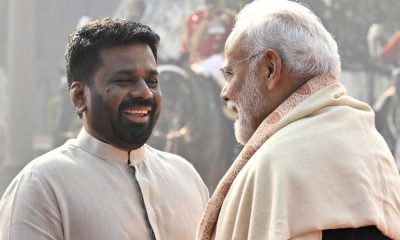
 Features7 days ago
Features7 days agoAKD faces challenging year ahead
-

 Editorial7 days ago
Editorial7 days agoA kiri-kekiri issue
-

 Sports7 days ago
Sports7 days agoSt. Sebastian’s dominate at Bambalapitiya
-
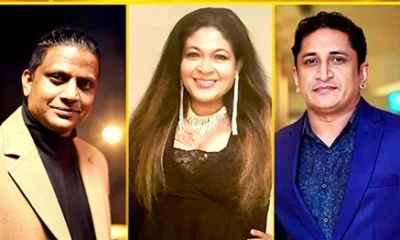
 Features6 days ago
Features6 days agoThey, too, had a ball …Down Under
-
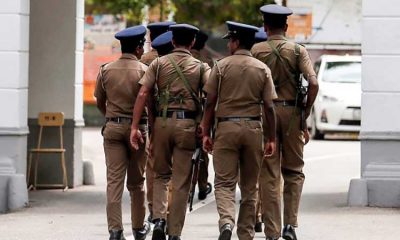
 News4 days ago
News4 days agoReshuffle of senior cops on the cards
-
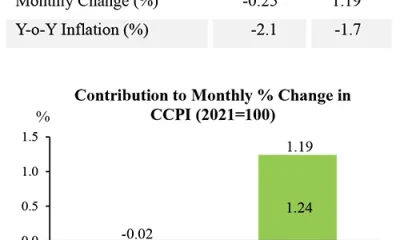
 Business6 days ago
Business6 days agoCCPI-based headline inflation continued to remain in negative territory in December 2024
-

 Editorial6 days ago
Editorial6 days agoMessages and subtexts
-

 Editorial5 days ago
Editorial5 days agoBribe-gate and other unsolved plots











